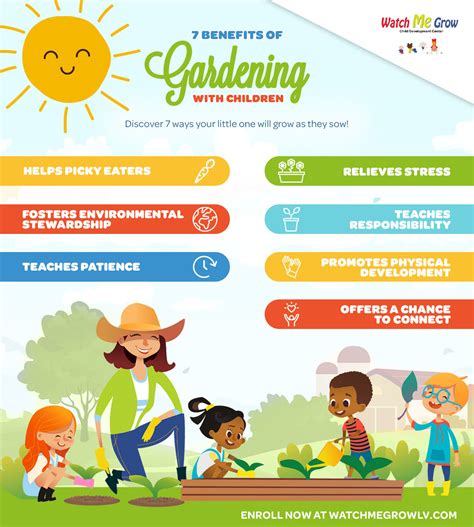The Hidden Benefits of Balcony Gardening for Kids: Creativity, Learning, and Fun
Gardening is an enriching experience, especially for children. Even with limited space, balcony gardening offers a world of possibilities for kids to explore. In urban settings, it’s not just about growing plants; it’s a powerful way to teach responsibility, creativity, and practical skills. This article explores how kids can benefit from gardening on your balcony, covering key concepts, historical perspectives, current trends, practical applications, and more.
Key Concepts
Before diving into the benefits of balcony gardening for kids, it’s important to understand some foundational ideas.
- Container Gardening: A gardening method where plants grow in pots or other containers, ideal for balconies.
- Urban Gardening: Growing plants in a city environment, often in small spaces like balconies, patios, or rooftops.
- Gardening for Kids: Engaging children in the process of growing plants, allowing them to learn about nature and responsibility.
- Creativity: Encouraging kids to experiment with plant arrangement, container designs, and outdoor decoration to make their space unique.
- Learning: Children develop knowledge of biology, ecology, and even math while planning their garden.
- Fun: Gardening brings enjoyment through hands-on activities and watching plants grow over time.
Historical Context
Gardening has been a human activity for thousands of years, but the concept of urban gardening gained traction during wartime when space for agriculture was limited. “Victory Gardens” were encouraged during World War II, allowing citizens to grow their own food on rooftops and small urban plots. In modern times, urbanization has led to smaller living spaces, and balcony gardening has become a practical and rewarding solution, especially for children. Kids’ engagement in gardening has also evolved from a mere hobby to an educational tool used by parents and schools alike.
Current State Analysis
Today, balcony and urban gardening are widely practiced, especially in densely populated areas where outdoor space is scarce. For children, this type of gardening provides opportunities to explore nature within city limits. There are growing resources and support systems, such as online gardening communities, workshops, and social media groups, that encourage gardening for kids. Environmental consciousness has also played a significant role in promoting urban gardening, as more families realize the value of introducing kids to sustainable practices early on.
Practical Applications
Engaging children in balcony gardening offers numerous practical benefits. Here are some actionable tips for getting started:
- Start Small: Use easy-to-grow plants such as herbs or small vegetables (tomatoes, radishes). They sprout quickly, maintaining children’s interest.
- Creative Containers: Encourage kids to decorate pots, cans, or recycled containers, which adds a personal touch and stimulates creativity.
- Responsibility: Assign tasks like watering and checking soil moisture to build a sense of responsibility in kids.
- Learning Opportunities: Teach kids about plant biology, the water cycle, and how weather affects plant growth.
- Include Fun Elements: Use colorful flowers, playful plant markers, and outdoor decorations to make gardening more enjoyable.
Case Studies
Consider the following examples of families and schools implementing gardening tips successfully in small urban spaces:
| Case Study | Description | Outcome |
|---|---|---|
| Smith Family Balcony Garden | The Smith family started with a small container garden of herbs and vegetables. Their kids took on the responsibility of watering and tracking growth. | Both children became more responsible and developed an interest in science through their garden journal. |
| Urban School Gardening Program | A New York-based school created a balcony garden program for students, integrating gardening into their biology curriculum. | Students reported improved understanding of plant biology and enjoyed hands-on learning experiences. |
| Perez Family’s DIY Gardening Project | The Perez family created unique planters using recycled materials. Their kids decorated the planters and experimented with different plant species. | Creativity flourished, and the children learned to upcycle, sparking interest in sustainability. |
Stakeholder Analysis
When it comes to gardening for kids on a balcony, several stakeholders are involved:
- Parents: Play a central role in guiding kids and facilitating the gardening process.
- Schools: Schools can integrate gardening programs to enhance their science curriculum.
- Community Garden Groups: Offer additional support and resources to families and educators.
- Retailers: Sell kid-friendly gardening tools and supplies designed for small spaces.
Implementation Guidelines
To make balcony gardening a rewarding and educational experience for kids, follow these guidelines:
- Choose Kid-Friendly Tools: Select lightweight, colorful tools that are easy for children to handle.
- Ensure Safety: Make sure the balcony is secure, with no risk of plants or tools falling.
- Age-Appropriate Tasks: Assign gardening tasks based on the child’s age and abilities.
- Incorporate Learning: Teach scientific concepts as part of the gardening process. Use charts to track plant growth.
- Plan for Seasonal Changes: Adjust plant choices and care routines based on the seasons, teaching adaptability.
Ethical Considerations
While gardening for kids provides many benefits, ethical considerations include ensuring sustainability and environmental responsibility. Avoid using harmful pesticides, teach kids about organic gardening, and emphasize the importance of conserving water and resources. This is crucial for fostering a generation that is environmentally conscious from a young age.
Limitations and Future Research
Despite its benefits, balcony gardening has limitations, such as space constraints, limited sunlight, and urban pollution. More research is needed on the long-term effects of urban gardening on children’s cognitive and emotional development. Additionally, advancements in container gardening technology could improve the feasibility of growing a wider variety of plants in small spaces.
Expert Commentary
Experts in child development and urban gardening agree on the multiple benefits of engaging children in balcony gardening. Dr. Sarah Green, a child psychologist, states, “Gardening gives kids a unique opportunity to connect with nature in urban environments, fostering both responsibility and creativity.” Meanwhile, urban horticulturist, Tom Reed, notes, “Balcony gardening teaches vital life skills while maximizing small urban spaces. It’s a hands-on activity that resonates with kids, sparking curiosity and environmental awareness.”


